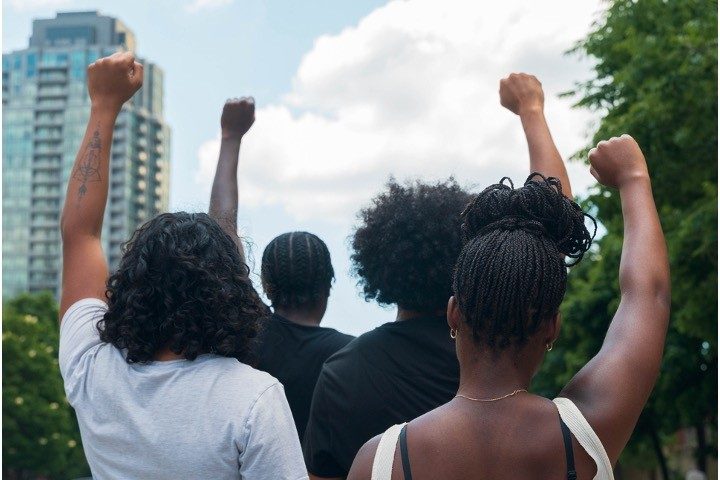
Black Lives Matter is facing internal backlash from its Canadian activists over the recent $8.1 million purchase of a mansion in Toronto that was once the headquarters of the Communist Party of Canada.
Most of the money came from the U.S. charity that serves as the face for the BLM movement. While the purchase of the 10,000-square-foot property in July largely went unnoticed at the time, it has now become a point of contention amid other revelations about BLM’s management and finances.
“For BLM Canada to take money from BLM Global Network [Foundation] for a building without consulting the community was unethical,” Canadian BLM activists Sarah Jama and Sahra Soudi said in a statement. “For BLM Canada to refuse to answer questions from young Black organizers goes against the spirit of movement-building.”
Jama and Soudi maintained that they stepped down from the steering committee of BLM’s Toronto chapter because BLM Canada’s leaders not only refused to answer questions about the mansion purchase, but tried to get them to sign a nondisclosure agreement (NDA) they considered exploitative.
“In other words, the NDA was designed as a constant threat of legal action against us, even though we were volunteering our time to a cause we believed in,” said the two activists.
“After over a year of struggling within @BLM_TO to improve internal processes, we left the group when, like many other people, we found out about @blmcanada_ $8 million dollar purchase of the @WildseedCentre_,” Jama wrote on Twitter.
According to BLM Canada, the property, dubbed the Wildseed Centre for Art & Activism, would serve as a “vessel that seeks to nurture Black radical creation in Toronto and beyond.”
“Wildseed is a transformed industrial space; a blank canvas reimagined as a multipurpose artist-run community incubator, gallery, studio and home to Black Lives Matter – Canada,” reads Wildseed’s website. “Wildseed is a transfeminist, queer affirming space politically aligned with supporting Black liberation work across Canada.”
According to real estate records obtained by the Washington Examiner, BLM Canada, which also goes by M4BJ, purchased the property for $8.1 million on July 13, 2021. The purchase came just weeks after the group’s co-founder, Patrisse Cullors, resigned amid scrutiny of her own personal real estate purchases across the U.S.
For example, Cullors purchased a 3.2-acre property in Georgia that boasts a private airplane hangar, a runway for small planes, and an indoor swimming pool; a property in the Bahamas at an ultra-exclusive resort where Justin Timberlake and Tiger Woods both have homes; and a 2,370-square-foot, $1.4 million property in Topanga Canyon, California.
Cullors resigned in May. Her wife, Janaya Khan, who considers herself “gender nonconforming,” also serves as a director of BLM Canada, according to the group’s Canadian charity registration.
BLM Canada co-founder Rodney Diverlus said in July that BLM Canada purchased the Wildseed property “outright,” and Canadian news outlets reported that the majority of the funding for the purchase came from BLM’s national arm in the form of a “restricted capital grant.”
Meanwhile, Sandy Hudson, BLM Canada’s chairwoman, said in an op-ed that the property came with a “history of resistance” after having been home to the Communist Party of Canada for more than 30 years.
Regarding Hudson, the Washington Examiner reported:
Hudson comes with her own history of alleged financial malfeasance.
Hudson was sued in 2015 by her former employer, the University of Toronto Student Union, for allegedly approving $247,726 in overtime payments for work she never completed.
All parties in the lawsuit settled the matter in 2017. The University of Toronto Student Union issued a statement saying there was no evidence that Hudson committed fraud. However, the statement added she agreed to pay back a portion of the overtime payments in question.
Last February, BLM revealed it received $90 million in donations from individuals and big corporations in 2020 in the aftermath of the death of George Floyd. The group claimed to have ended the year with $60 million on hand.
In late 2020, 10 local BLM chapters criticized the national arm, accusing it of giving insignificant financial support to local activists while not being transparent about operations and finances.
For “trained Marxists” who claim to hate the wealthy, BLM’s top brass seem to have no issue with enjoying the luxuries that are only possible in a free market economy.




